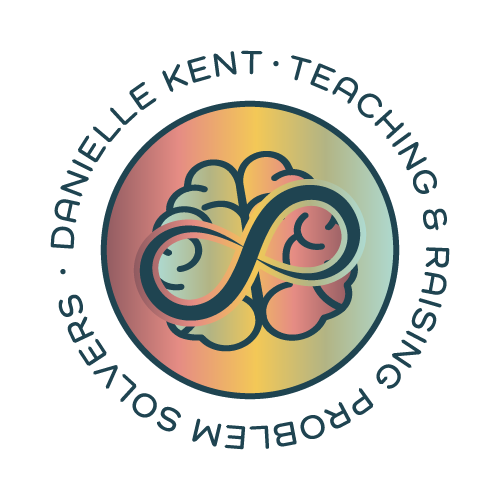Episode 24: Responsibility for our self-regulation
Hey, everyone! Welcome to episode 24.
I’m kind of enjoying diving right into these episodes without the pre-jingle, as I’m going to informally call it. But if you were enjoying that pre-jingle and you want me to put it back in, feel free to send me an email or find me on Instagram at @msdaniellekent. I think the faster I can get to the point – I know your time is so precious – the more you'll be able to absorb.
Every Monday I'm going to do a quote of the week. I'll also share it on social media. This week's quote of the week is from Dr. Stuart Shanker and Teresa Barker’s book, Self-Reg: How to Help Your Child (and You) Break the Stress Cycle and Successfully Engage with Life.
I first listened to this book on Audible several years ago. I just got a hard copy of the book last month, and it inspired me to pull quotes out of this and other books, such as Beyond Behaviors, Brain Body Parenting, Raising Good Humans, and more.
You'll get more quotes for the Monday quote of the week. I want these quotes to serve as some food for thought for you as you move throughout the week.
So, the quote for today is:
Don't get me wrong: Self-control is important. We're all aware of individuals who have risen to the top of their field who are models of self-control. But much more fundamental is the stress load that we're under and how well we deal with this: how well we self-regulate.
I wanted to share this quote today, on the heels of last week's Episodes 22 (Part 1) and 23 (Part 2), in which I essentially spoke to needing to steer the ship in a different direction from where we are right now, as it relates to behaviors.
In Part 2, I talked about how I think that as adults we really need to start focusing on developing our own skills of self-regulation.
I am currently working on my own self-regulation. I'm working with a coach to enhance my self-accountability and my own self-regulation skills.
Those of you who know me will say, “Danielle, you seem really regulated! I've never seen you flip your lid, and you're really goal-directed. Absolutely. But one thing that I have historically struggled with is being accountable to myself and regulating for myself – for example, holding tight to my workouts, holding tight to the meals I want to have as a family, holding tight to goals like this podcast. I have wanted to be more regular with this podcast forever, and it just kept slipping to the bottom of my proverbial to-do list.
This skill, though–the skill of developing self-regulation and self- accountability–has tremendously enhanced my overall well-being. And I believe that as a society we have, as I talked about Friday, an “us vs. them” mentality: either you have self-control or you don't. (“Well, they just have a lot of self-control so they're not eating a dozen donuts,” or “they're not struggling with running for 5 minutes”, or whatever it is.) And I think these skills, what we think of as self-control, really represent self-regulation.
How do we manage the stress load we have? How do we manage ourselves with that stress load? It is a fundamental necessity for life to be able to protect or recreate a healthy society where we are interdependently working together; one where we are focused on our own collective self-regulation development, which means knowing ourselves, knowing our own thoughts and feelings, knowing what is stressful for us and managing those stressors instead of thinking that somebody else should manage them for us. I think that's really, really important. We're teaching self-accountability and self-responsibility to our kids, which means we should be learning that first.
I think that's very important, what I just said, so I'm going to restate it in a different way. To repeat the quote that I read, “much more fundamental is the stress load that we're under and how well we deal with this: how well we self-regulate.” Knowing our own self-regulation means we know our stressors. We know what could be stressful for us, we know what is stressful for us, and we know what to do with that information. We can't always erase or step away from a stressful situation. We are able to be aware of what we can maximally do to take care of ourselves, and in different seasons that’s going to look different.
When you go through different seasons of your life, you’re going to experience varied levels of stress. You may be in an incredibly stressful season, when you’ve lost someone you love. Or maybe your living situation has changed in a way that’s positive – you have a child, get married, etc. Remember, stress is just when your capacity is slightly under what is required by a demand, or the demand slightly outweighs the capacity you have.
Stress is inherently good, but too much stress–that is, stress that far outweighs our capacity–can be thought of as more toxic or unmanageable. But we are responsible, individually, for learning about our stress levels, for learning about what stresses us. That is our job to do, that is our work to do.
All right, everybody – hope you enjoyed today’s quote of the week, and I will be back to you on Friday.
